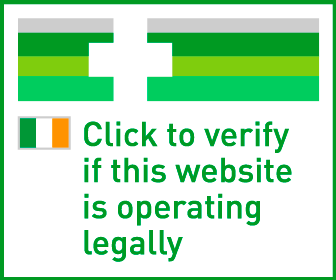Learn all about retinol & why it’s such a popular anti-ageing ingredient
If you haven’t discovered the wonderful properties of retinol yet, you’re in for a treat. This skincare superstar is raved about by everyone from beauty bloggers to celebrities, but why’s it so popular?
What is retinol?
Retinol is an over-the-counter cosmetic ingredient that’s become popular over recent years for helping to soften existing wrinkles and fight against the formation of new ones. Many people use creams containing retinol to help reduce signs of ageing, but its array of fantastic uses don’t end there. Due to retinol’s revitalising qualities, it can also be used to help improve the appearance of a number of other skin imperfections.
How does retinol work?
Retinol is a derivative of vitamin A. It helps to smooth imperfections and reduce the appearance of wrinkles, as well as being great for helping to reduce the appearance of dark spots, blotches and sun damage.
How to use retinol
Ah, the age-old question. We caught up with The Ask INKEY Team from skincare gurus The INKEY List for some top tips on introducing retinol into your regime.
Start by using “lower percentages and gradually increase the strength over time as your skin adjusts," The Ask INKEY Team says. “It’s important to start slowly and increase as your skin can tolerate it, and we recommend using retinol two-to-three times per week.”
If your skin is on the sensitive side, our experts advise something gentle enough to use on a regular basis, like bakuchiol. "It’s a plant-derived ingredient considered to be the natural alternative to retinol,” they tell us – and you can use it in your regime if you're breastfeeding.
When should I use retinol?
We know it’s powerful stuff, so stick to using it a few times a week. “Due to the nature of retinol and its skin renewal properties, it’s really important to only use it as part of your evening skincare routine," says The Ask INKEY Team. Don't forget to apply an SPF moisturiser the morning after using retinol, as it can increase your skin's sensitivity to the sun.
How long before I start seeing results from retinol?
Although it is indeed a gem of the skincare world, it won’t work immediately. “It can take up to six weeks for results to show," our experts advise. "This is directly related to the time it takes for your skin cells to be replaced."
Good things come to those who wait and after a while, you might begin to see a fresher, younger-looking you every time you check yourself out in the mirror.
What retinol products should I use?
At Boots we’ve got a wide variety of different retinol creams and serums to suit your skin type and beauty needs.
If fast anti-ageing results are what you’re after, then look no further than the No7 anti-ageing skincare range.
Likewise, if you want help to reduce the appearance of those pesky wrinkles around your eyes, why not try Olay Pro-Retinol Eye treatment? The unique retinol blend makes it suitable for the extra-sensitive skin around your eye area.
How will my skin react to retinol?
Chances are you’re raring to go and grab some retinol creams to add to your skincare regime – we don’t blame you! Still, there are some things to be aware of before you start using retinol.
• A common effect of using retinol creams is that they may result in your skin becoming somewhat red and dry
• You can minimise the dryness and irritation that comes with retinol use by using a good hydrating moisturiser daily. Using a soothing or hydrating face mask like the Boots Ingredients sheet face mask two or three times a week may also help to reduce these side effects
• Another effect of retinol is that it may cause your skin to become sensitive to sunlight. A simple fix to this is to use an SPF sun cream (we recommend SPF30 at minimum)
• Overusing retinol cream won’t speed up your results, but it could make the side effects more severe. To avoid this happening, don’t use retinol more than once a day




